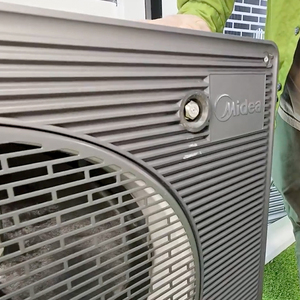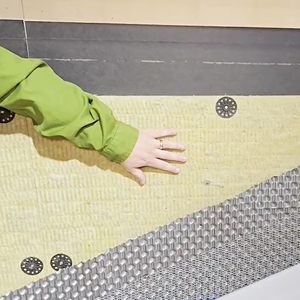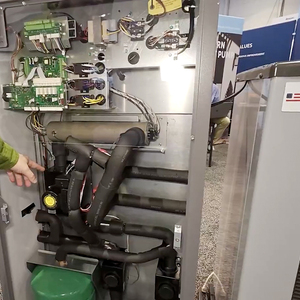PAINTING – How to dispose of the slops??
RE: Paint slops, latex.
Folks,
Just finished a Blitz Build with the Lennar folks and a major problem on our jobsites was getting rid of the painting residue and slops from brush cleaning. In fact, tomorrow I will go back and find 15 gallons of latex water tucked away, waiting for me. They dug a pit in the back yard, but in clay, this is not that useful. Filled it early and we still have stuff left over.
How do you get rid of this stuff?
(Don’t suggest brushing it out on cardboard and waiting for the sun to dry it. BTDT. I can collect Social Security before this method works – and this is in CA, with sunshine.)
Any way to filter the stuff? Thru sand? Thru bentonite? Pour slops in the top of the drum, get clear water out the bottom?
What do the pros do?



















Replies
In CA it's toxic waste in the storm drains, BUT, magically it's ok to pour it down the drain.
Legal disposal is the kitchen sink. Hole in the yard is probably gonna put you in the cell next to Saddam Hussein.
Joe H
I wanted to flush the stuff down a cleanout into the sewer treatment system, but the super thought that would be very naughty.
If I could legally use the sewer system, I could build a brush wash station and dispose of the whole problem neatly.
"In CA it's toxic waste in the storm drains, BUT, magically it's ok to pour it down the drain."
Storm Drains (those grates in the city streets) generally lead straight to lakes, streams and oceans. Maybe with some screens to take out the logs, but no other treatment.
As others have said, check locally. But a city sewer system (where the toilet and kitchen sink goes) has settling tanks, floatation tanks, aerobic digesters, anaerobic digesters, etc.
Local regs aside, I feel the least impact would come from letting it dry out throughly in the can, toss in a little kitty litter as well, secure the lid and put it in the landfill.
Ideally, your local landfill has amnesty days and a catagory for latex paint. But they'll probably do the same thing so you could save your muncipality some money - it probably needs it.David Thomas Overlooking Cook Inlet in Kenai, Alaska
Just trying to learn something here. Is latex paint really an environmental hazard? I wouldn't pour it in a storm drain, but wouldn't hesitate to send it to the land fill... What's the story? I mean it's just water and some forms of plastic - isn't it. Couldn't be any worse than all the Styrofoam that fast food "restaurants" contributes to our fine country...
Matt
PS: what are "slobs" - when I first read the title I thought he was talking firing incompetent painters... :) Oh, wait a minute - that's "sloPs".
Edited 12/15/2003 6:05:52 PM ET by DIRISHINME
Latex paint for residential use sold in the last 25 years isn't very bad stuff. Once they got the lead and cadmium salts out, it is not very toxic. It is still a source of fine particles and would cause turbidity (lack of clarity) in surface waters.
Once dry, it's just a big lump, not fine particles.David Thomas Overlooking Cook Inlet in Kenai, Alaska
How toxic are the polymers, ethylene glycol, and mildewicides used in some of the newer latex paints?
Ethylene gycol degrades in the environment. (In your body for that matter, but it's those dang oxalate crystal that cause the renal failure.)
Polymers are, mostly, pretty benign.
"Mildewicides" ("Fungicides" in federal regulations) obviously are bad for fungi. But not nearly so bad to animals. The animal versus fungi chemical warfare has been going on for a few billion years now. Most classes of antibiotics were not truly invented by humans. But manufactured by molds and others fungi and discovered by humans. Conversely, something aimed specifically fungi isn't typical highly toxic to animals.
That said, given the option, I'd avoid them. On a camping trip, someone was about to toss the salad in a Hefty trash bag (seemingly clever idea). I asked them to turn it inside out first, since they coat the inside with fungicides.David Thomas Overlooking Cook Inlet in Kenai, Alaska
Thanks. Sounds like maybe take the lid off before tossing it in the site dumpster. Maybe let it sit around for several days first.
Matt
This stuff has been sitting around and shows no inclination to settle out. It must be a fine suspension. Dry wells in our clay soils turn into swamps. I wonder about a kitty litter filter.
I take the latex water and dump it into a bucket. Then I take an old tee shirt on a hanger and suspending the tail into one or two gallon bucket. I hang it in a sunny spot facing south behind the shed. A gallon can evaporate in a single sunny warm, this is Florida so your mileage may vary. The Solids I keep, under protection from rain until it is completely solid. This I toss in the trash with the bucket unless I'm saving buckets at the time.
just for reference I let the mineral spirits settle in glass jars for oil based clean up. I use a turkey baster to draw off the clean at the top. I continue to concentrate until it won't, even after a weeks time, settle much more. This I take to a recycling plant during amnesty days. The clear, or clearish, liquid I reuse. The cycle of life... er wrong movie ... paint thinner goes on.
Thanks for the ideas.
I am going to have to try evaporation. CA has some sun in the winter.
More in summer. Like the turkey baster idea for my own thinner residue.
Ever try kitty litter or bentonite? We got 100# for our ReStore for those leakers and other fine donated paints, but I have not heard back.
Every place is different; around here, you aren't allowed to pour it down the drain, what they want you to do is fill the cans with kitty litter to absorb all the water, bang the tops on loosely, and take it to the landfill.
Made no sense to me at all, but there ya go.
Latex can be dried up with kitty litter and then disposed of as normal solid waste around here. Our county recycling center will not take latex paints. They hand out instruction sheets that tell how to dispose of it using kitty litter. we leave the lids off of the cans and the cans stacked seperately for normal trash pickup.
Check with your local sanitation department for thier reccomendations.
Dave
Around here in Vermont, we have to let the paint dry first before we can put it in the transfer station.
As for wet paint, oil, latex, whatever, we can recycle it 2 days a year when they have a special hazardous waste pick-up day.
I usually save the left overs for then.
As for the waste water for washing brushes, I have a dry well for that. No solvents.
Jeff